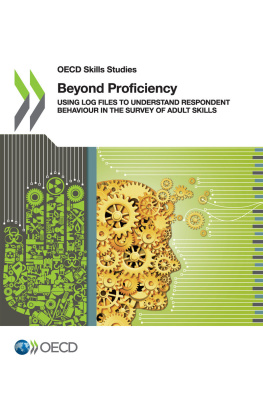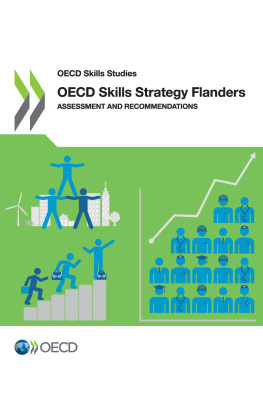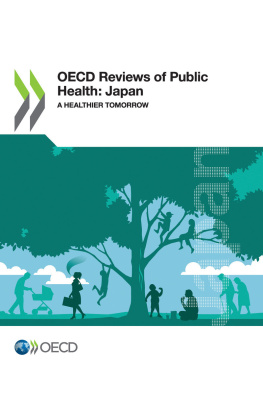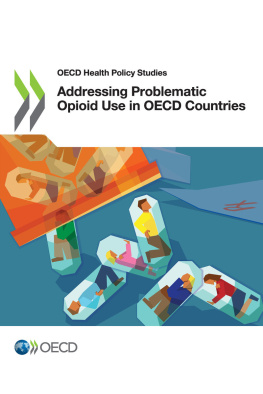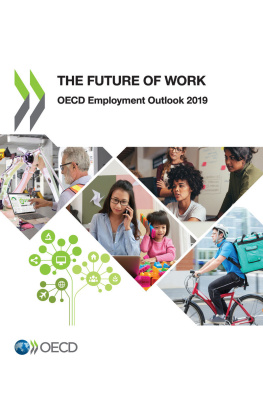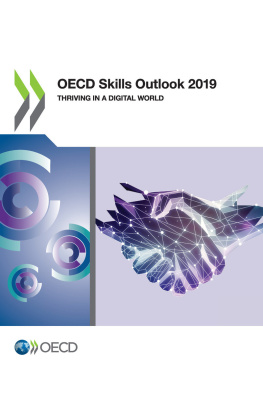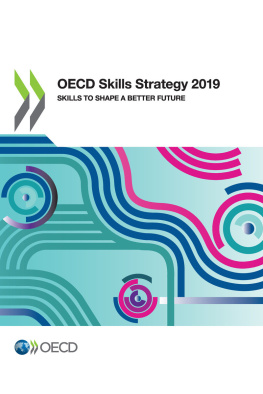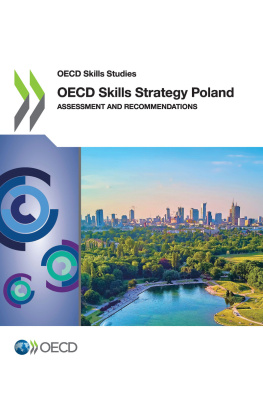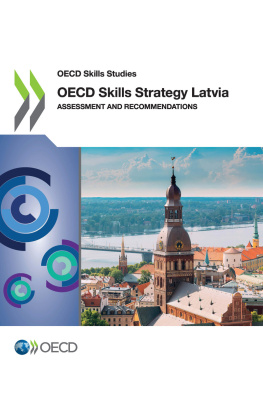OECD - Beyond Proficiency
Here you can read online OECD - Beyond Proficiency full text of the book (entire story) in english for free. Download pdf and epub, get meaning, cover and reviews about this ebook. year: 2019, publisher: OECD Publishing, genre: Computer. Description of the work, (preface) as well as reviews are available. Best literature library LitArk.com created for fans of good reading and offers a wide selection of genres:
Romance novel
Science fiction
Adventure
Detective
Science
History
Home and family
Prose
Art
Politics
Computer
Non-fiction
Religion
Business
Children
Humor
Choose a favorite category and find really read worthwhile books. Enjoy immersion in the world of imagination, feel the emotions of the characters or learn something new for yourself, make an fascinating discovery.
Beyond Proficiency: summary, description and annotation
We offer to read an annotation, description, summary or preface (depends on what the author of the book "Beyond Proficiency" wrote himself). If you haven't found the necessary information about the book — write in the comments, we will try to find it.
OECD: author's other books
Who wrote Beyond Proficiency? Find out the surname, the name of the author of the book and a list of all author's works by series.
Beyond Proficiency — read online for free the complete book (whole text) full work
Below is the text of the book, divided by pages. System saving the place of the last page read, allows you to conveniently read the book "Beyond Proficiency" online for free, without having to search again every time where you left off. Put a bookmark, and you can go to the page where you finished reading at any time.
Font size:
Interval:
Bookmark:
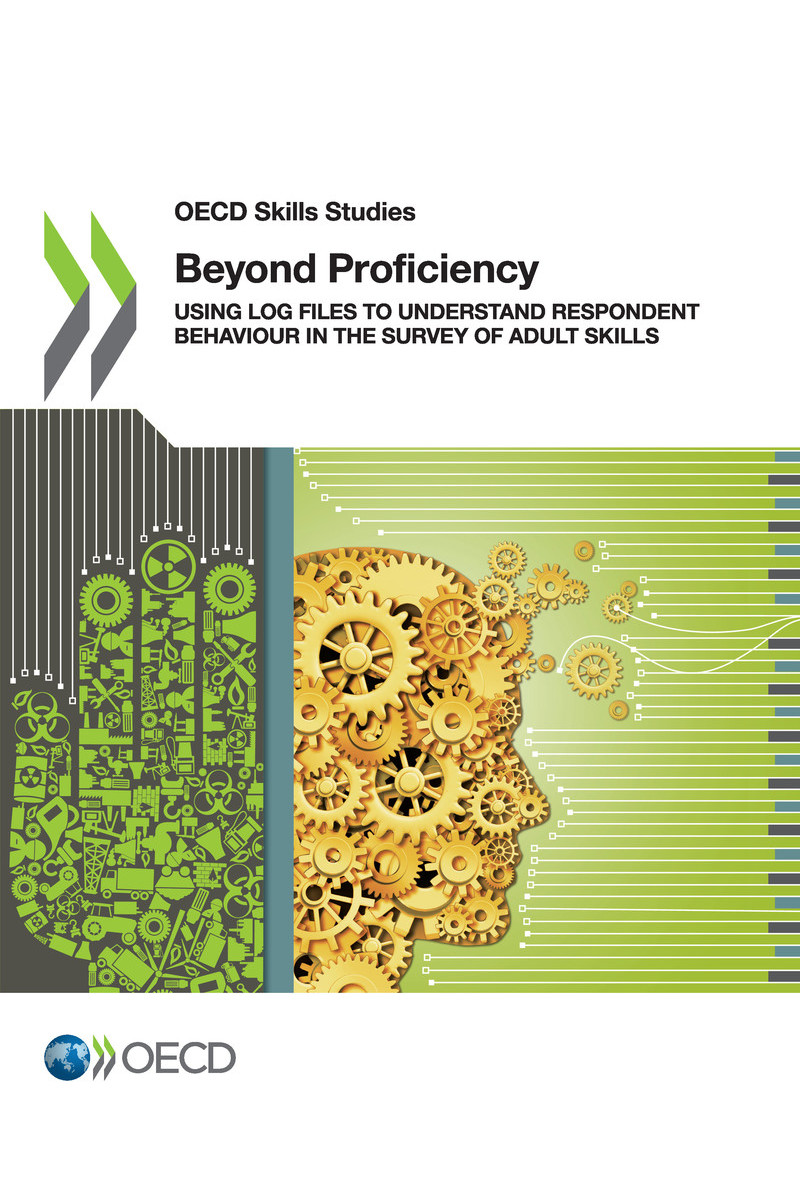
OECD (2019), Beyond Proficiency: Using Log Files to Understand Respondent Behaviour in the Survey of Adult Skills , OECD Skills Studies, OECD Publishing, Paris.
https://doi.org/10.1787/0b1414ed-en
Digital technologies are revolutionising many aspects of our everyday life, and skills assessments are no exception. The Survey of Adult Skills, a product of the Programme for the International Assessment of Adult Competencies (PIAAC) (hereafter referred to as PIAAC) was the first large-scale international assessment fully designed to be primarily delivered on a computer.
This choice of computer-based delivery was motivated by several considerations. First, an assessment of information-processing skills in the 21st century needed to test adults capacity to access and interpret information in digital formats. Second, assessment tasks delivered by computer can be highly interactive. This makes it possible to refine the measurement of traditional information-processing skills, as well as to develop measures of innovative testing domains, such as problem-solving in technology-rich environments or adaptive problem-solving. Finally, computer delivery provides other benefits, such as increased efficiency and improvements in data quality (e.g. automatic scoring of answers, lower loss of data and more complex test designs and in the management of survey administration).
Another important consequence of computer-based delivery is that the testing platform can record information about all the interactions between test takers and the computer. This information is stored in log-files and is also known as process data.
By providing a way to observe how test-takers approach and try to solve the tasks presented to them, process data have the potential to substantially enrich the information we get and, therefore, the lessons we learn from skills assessments. Process data can be used to further refine the measurement of skills traditionally assessed and to enlarge the set of indicators we obtain from assessments. They can be used to proxy unobservable traits, such as motivation and perseverance, to better understand the relationship between these attitudes and performance, and also to better interpret and contextualise the results of large-scale assessments and the differences that we normally observe across countries or socio-demographic groups.
This report offers a roadmap for readers interested in knowing more about process data and how they can be used for research purposes and to inform policy making. It describes currently available process data from PIAAC and provides examples of the analysis that can be undertaken with them.
At the same time, the report acknowledges that research on process data is still in its infancy. For the moment, log files are largely an unintended by-product of computer-based administration. Not all information that we would like to have in them has been recorded, and the available information is often cumbersome to extract and, more importantly, to interpret.
But the path before us is now clearly traced. The analysis of process data will increasingly inform the process of test development through a better understanding of the strategies and behaviour of test takers. Process data will increasingly be used to design better assessments. In an iterative process, assessments will be increasingly designed to better exploit the fact that we now have the tools to observe not only whether or not test takers are able to solve a task presented to them, but also how they arrived at the solution and where they went right and where they went wrong.
If research on process data fulfils its promise, large-scale assessments will no longer only be used as a tool to describe where OECD countries stand in terms of the skills of their adult and student populations, but also as a tool that will teach them how they can improve.

Andreas Schleicher,
Director for Education and Skills and Special Advisor on Education Policy to the Secretary-General, OECD
Development of this report was guided by Andreas Schleicher and overseen by the PIAAC Board of Participating Countries. The report was led by William Thorn and drafted by Marco Paccagnella and Franois Keslair, with statistical analysis by Franois Keslair. Susan Copeland edited the report, and Jennifer Cannon and Sophie Limoges co-ordinated its production.
Computer-based administration of large-scale assessments makes it possible to collect a much richer set of information on test takers than pencil and paper tests. In principle, it is possible to record all interactions between the computer user interface on which the test is taken and a server.
This information about the actions undertaken in the course of the assessment can help policy makers, researchers and educators to better understand the cognitive strategies used by respondents and the underlying causes of low and high performance, and thus to design appropriate interventions.
The information contained in log files (also denoted as process data) can also be used to investigate aspects of respondents ability, attitudes and behaviour, over and above the cognitive constructs that test items are designed to measure. For example, timing information can be used as proxies of test-takers motivation, engagement and perseverance. As performance in a test is always the combined outcome of the ability of the respondent and the effort exerted in the course of the assessment, information on the motivation and engagement of respondents is essential for interpreting differences in observed performance, especially when respondents do not have any stakes in the assessment.
Font size:
Interval:
Bookmark:
Similar books «Beyond Proficiency»
Look at similar books to Beyond Proficiency. We have selected literature similar in name and meaning in the hope of providing readers with more options to find new, interesting, not yet read works.
Discussion, reviews of the book Beyond Proficiency and just readers' own opinions. Leave your comments, write what you think about the work, its meaning or the main characters. Specify what exactly you liked and what you didn't like, and why you think so.

